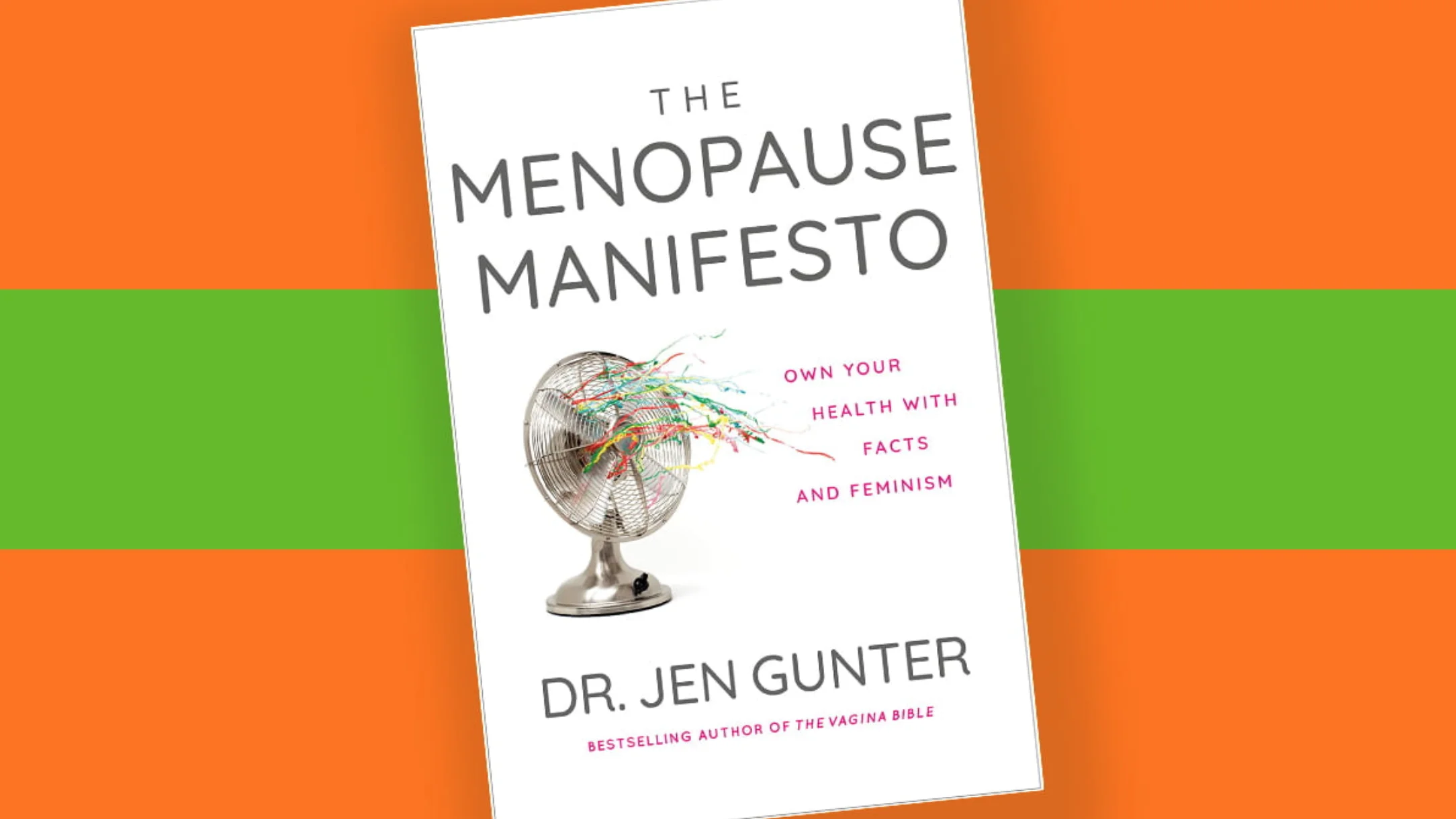Reclaiming Women’s Health with Hard Facts, Real Science and Feminism
Dr. Jen Gunter returned to discuss her latest book The Menopause Manifesto: Own Your Health with Facts and Feminism (Random House Canada, May 25, 2021) with GATE director, Dr. Sarah Kaplan. (She visited us in 2019 to discuss her previous book, The Vagina Bible, and you can see a recap here.)
Together, Dr. Gunter and Dr. Kaplan explored and debunked many of the myths and misogynist attitudes surrounding menopause. They examined the impact that misinformation and a lack of reliable research has on women’s health and on their pocketbooks. Dr. Gunter discussed the science behind menopause, and separated out fact from myth.
The Grandmother Hypothesis
Rather than the patriarchal view of menopause as “ovarian failure,” menopause should be seen as women outliving their ovarian function. This leads to the “Grandmother Hypothesis” which argues that when there is a longer-lived person who can help with child-rearing and household tasks, then younger women are more likely to reproduce. The only way that grandmothers could help out with these duties and tasks was if they didn’t have children of their own to take care of. The Grandmother Hypothesis suggests that it became worthwhile for women to outlive their ovarian function and changes the economics of the family unit.
The Supplement Industry
When the medical community does not have open and meaningful discussions about topics related to women’s health, then people turn elsewhere for information. Unfortunately, this leads many people to turn towards groups that give unreliable and unsafe advice. Many supplements are unstudied and unregulated, with little research behind them and very little safety data available. Production rules around supplements are lax, making it difficult to do accurate studies on them. Supplements can be adulterated with hormones and antidepressants, often causing more harm than good. At a minimum, women are collectively spending millions on supplements that don’t actually work.
The Glass Ceiling in Medicine
Women doctors in the medical field, as in many other fields, suffer from the glass ceiling. As a doctor, you get paid less for an ovarian biopsy than you would for a testicular biopsy even though the tools, risks and processes are the same While women graduate medical school in greater numbers than men, the leadership and decision makers in the field are still dominated by men. As a result, research into women’s health is also often underfunded. Due to the lack of inclusive practices in academia, many women end up leaving the field, contributing to the pipeline problem. Research has shown that when women are involved in scientific studies, it leads to different innovations because their lived experiences are different.
Governments, Curriculums and Menopause
Half the population will experience menopause and evidence suggests that many women quit their jobs, reduce their hours or become less productive because of menopause symptoms. Yet, menopause is often not part of medical training, even for OB/GYN’s. Dr. Gunter suggests that dedicated menopause centers would radically reduce the medical and economic costs that both women and the medical system incur.
Watch Dr. Jen Gunter discuss the grandmother hypothesis and the supplement industry.




